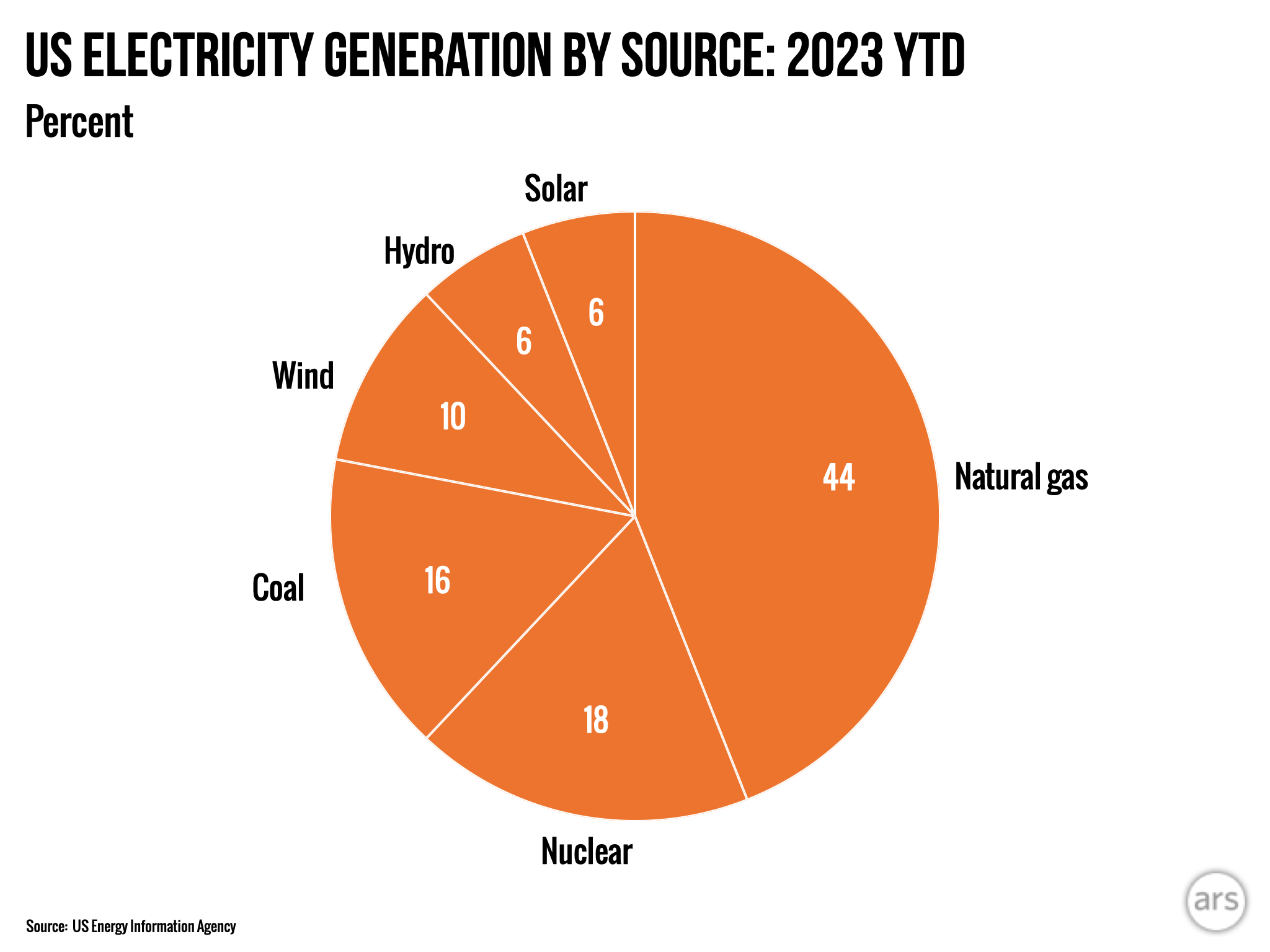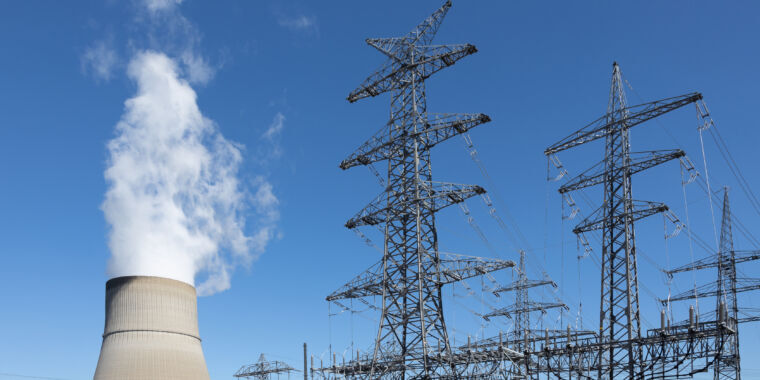It is cheaper to operate and that has been it’s selling point for the last years.
In case you’re ever wondering, this is an example of your tax dollars at work. Thirty years ago solar and wind generation had to be heavily subsidized with government grants to make them viable in the energy market. Now the technology of both has advanced to the point that it’s undercutting all of the other forms of electricity generation, without subsidization.
Government subsidies work. They’re effective for getting new technologies off the ground.
Everything I find shows them as still being subsidized and receiving the lions share of energy subsidies, which is fine in my book.
Everything I find shows them as still being subsidized and receiving the lions share of energy subsidies
According to Senator Sheldon Whitehouse, the bulk of our state and federal subsidies are tilted towards fossil fuels.
As we’ll hear today, the United States subsidizes the fossil fuel industry with taxpayer dollars. It’s not just the US: according to the International Energy Agency, fossil fuel handouts hit a global high of $1 trillion in 2022 – the same year Big Oil pulled in a record $4 trillion of income.
In the United States, by some estimates taxpayers pay about $20 billion dollars every year to the fossil fuel industry. What do we get for that? Economists generally agree: not much. To quote conservative economist Gib Metcalf: these subsidies offer “little if any benefit in the form of oil patch jobs, lower prices at the pump, or increased energy security for the country.” The cash subsidy is both big and wrong.
It should be noted that your link only explores federal subsidies, while Whitehouse notes the bulk of subsidization that happen at the state and local level. Texas, for instance, invests enormously in public works that benefit fossil fuel producers while offering the administrative offices generous grants and tax forbearances to operate within the state.
Because energy consumption underpins the bulk of our commercial activities, there is a real net-benefit to keeping raw fuel and electricity prices artificially low. Market rate energy would constrict capital construction and real estate development, reduce employment rates, and increase inflation - generally speaking, it would cut into long term economic growth. The OPEC embargo of the 70s demonstrated as much.
At the same time, fossil fuel consumption yields a host of side-effects - degradation of air and water quality, rising global temperatures leading to more sever weather and sea levels which increase the rate of coastal erosion, wholesale destruction of agricultural land and waterways where spills occur, etc.
So subsidies aren’t bad on their face, but fossil fuel subsidies - particularly at the scale of current energy consumption - carry far too many negative externalities to be considered good long term policy.
Unfortunately, the political benefits of fossil fuel subsidy continue to outweigh the social consequences, leading to a political class that is financially invested in continuing subsidies that have long since transformed into a net negative for domestic growth.
That’s actually better than I thought.
In my city they had everyone switch to renewable energy, they sent Mail out stating that your energy source will automatically change unless you opt out.
LOL how are they going to change the energy source that powers an individual house if they “opt out” ??
Did they run separate power lines to every house that is on a switch between the power sources? It’s not like a network packet that you can route to a destination, it’s going to go down the lines the same way unless the circuit is broken.
Suppose Provider A is 100% renewable and Provider B is 100% fossil. Both providers generate power and feed the same grid (which is managed separately from the various energy providers). The same grid powers all homes. Householders get to choose whether to buy from Provider A or Provider B. If you support renewables then you buy from Provider A; their share goes up and B’s share goes down. And vice versa for B. In addition the government juggles A,B as well as C,D,E,etc to provide the overall service to the country.
 Hmmm… This pie needs more nuclear.
Hmmm… This pie needs more nuclear.This makes electric cars less polluting with every passing day as this percentage increases.
Car manufacturing is, itself, a messy process. And we’d all be better off (for a whole host of reasons) if we could move to a public transit system and away from the messy, overly-complex, extraordinarily expensive highways-and-byways personal vehicle system.
Electrified rail and Multi-family homes would dramatically reduce both energy consumption AND housing costs, if we were willing to invest in it at rates comparable to what we spend subsidizing new fossil fuel wells, road expansion/maintenance, and policing of the homeless.
The only thing that’s keeping carbon-free power from growing faster is natural gas, which is the fastest-growing source of generation at the moment, going from 40 percent of the year-to-date total in 2022 to 43.3 percent this year. (It’s actually slightly below that level in the October data.) The explosive growth of natural gas in the US has been a big environmental win, since it creates the least particulate pollution of all the fossil fuels, as well as the lowest carbon emissions per unit of electricity. But its use is going to need to start dropping soon if the US is to meet its climate goals, so it will be critical to see whether its growth flat lines over the next few years.
Uh… So, listen. I work in the Nat Gas sector. And while I’m happy to confirm that its far cleaner, easier/safer to transport, and more efficient than coal and liquid oil, I’m going to have to pump the breaks on the enthusiasm. We are definitely not “emissions-free”. One of the larger investments we’ve made, in the last few years, has been in detecting gas leaks along our existing lines and plugging them. And we definitely still flare off excess and lose reserves during transit as circumstances dictate.
Way back in the 1970s a small upstart energy company known as Exxon had one of its engineering departments estimate the ecological impact of drilling into the East Natuna gas field off the coast of Indonesia. This was primarily a natural gas reserve, accessible without the modern fracking and cracking techniques used throughout the Permian and Delphi Basins.
Senior scientist of Exxon, James Black, authored a report estimating the impact of drilling and burning off the fuel in the East Natuna reserve, and concluded it would result in a significant increase in global temperatures. This lead Exxon to commission further studies, in the late 70s and early 80s, to estimate the full impact of their drilling and refining practices. The end result was a model of climate change that has mapped neatly to current climate trends
I say this because while natural gas is relatively cleaner, it is by no means clean. And with the increasing rate of energy consumption occurring globally, our reliance on natural gas is decidedly not contributing to an emissions free future.




